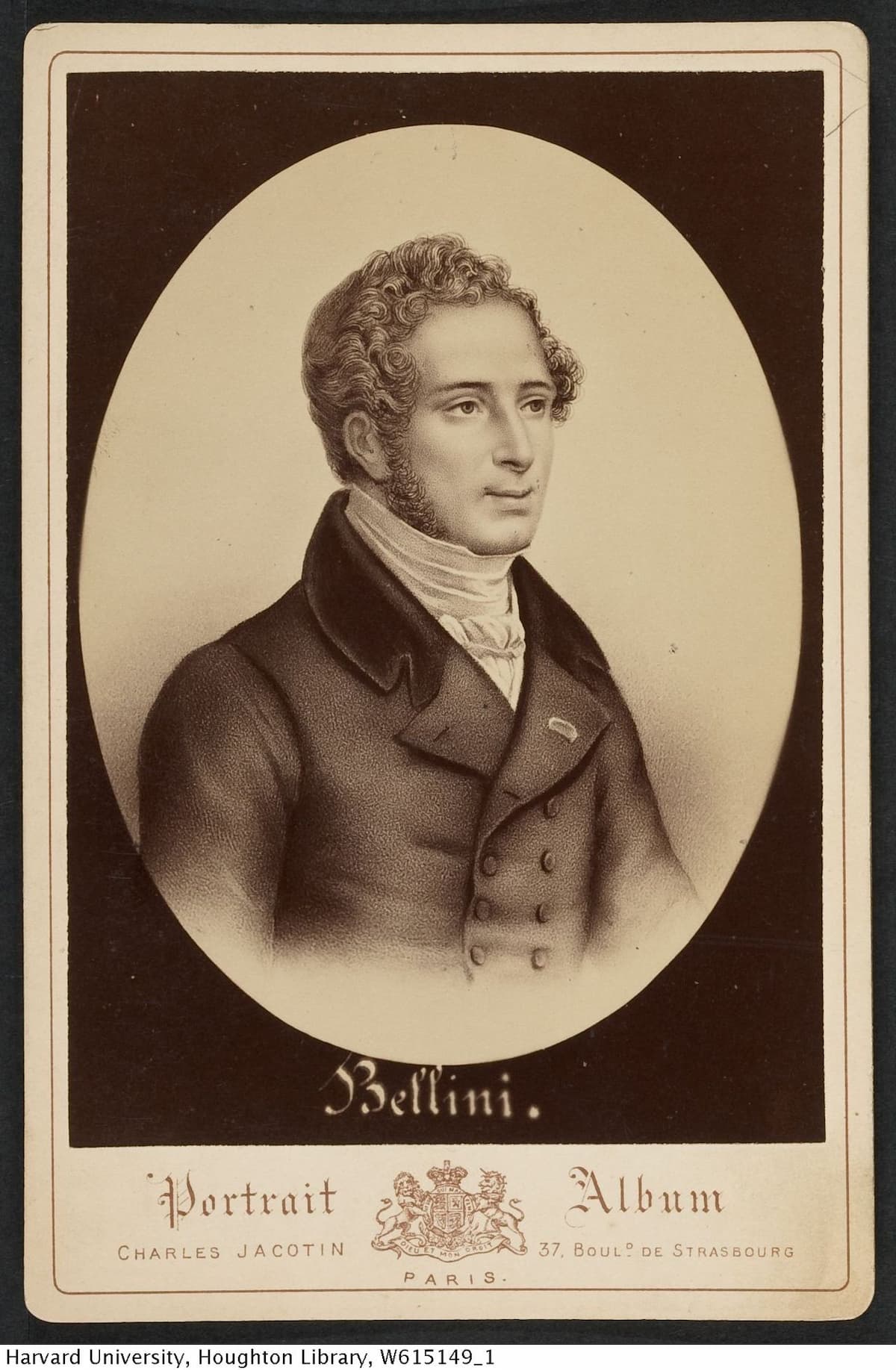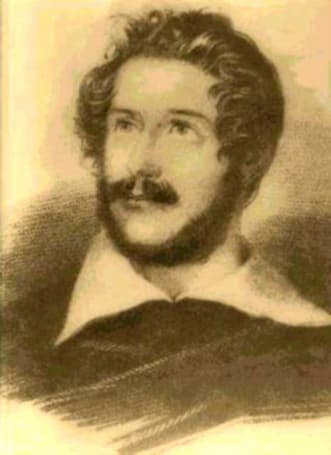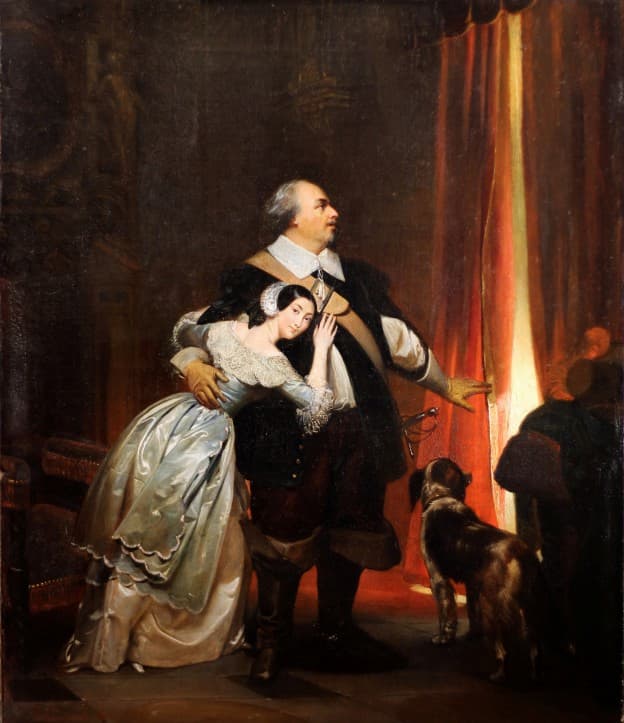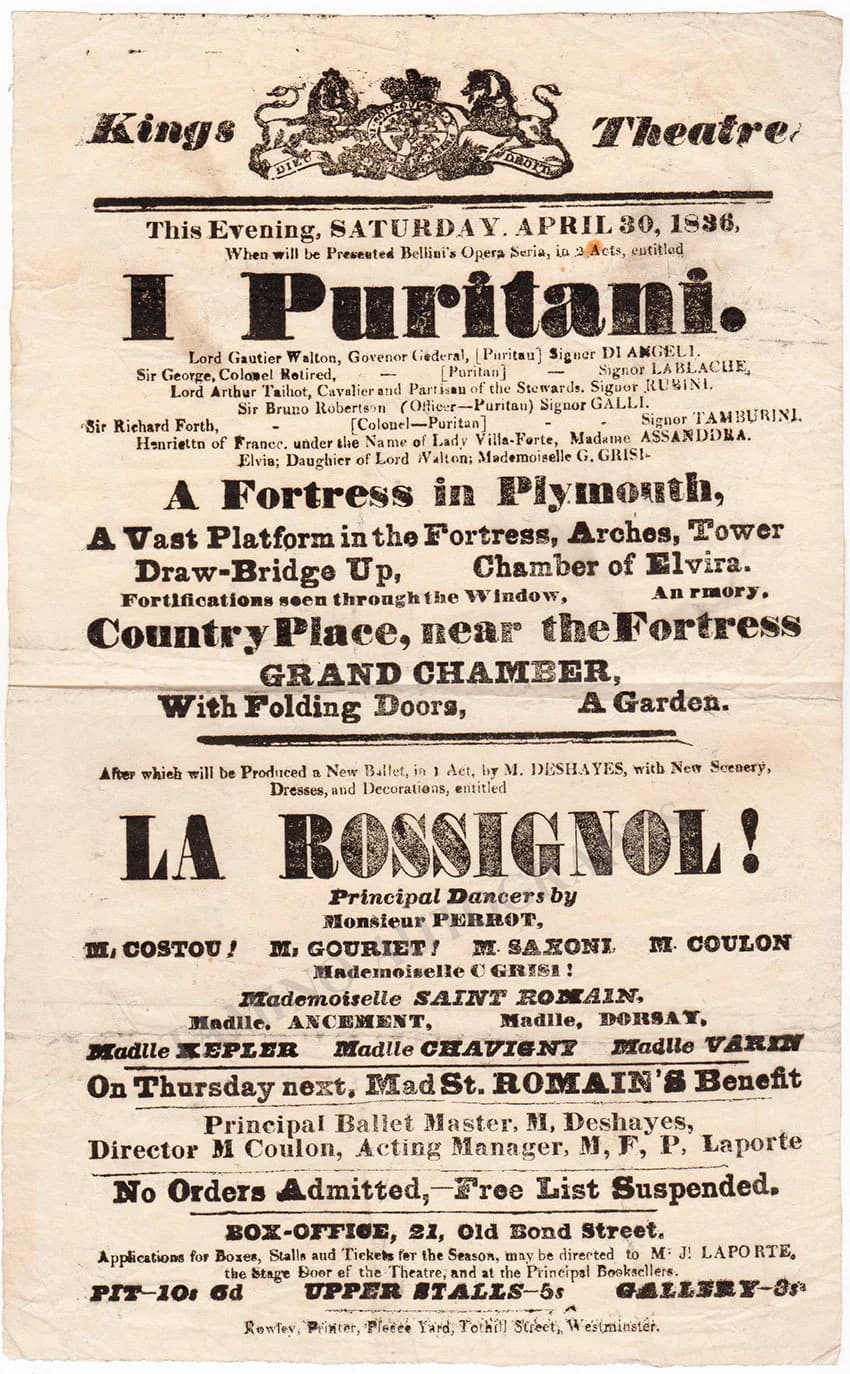The “Théâtre Italien” in Paris premiered Vincenzo Bellini’s final opera I Puritani (The Puritans) on 24 January 1835. Presented just months before Bellini’s untimely death at the age of 33, the opera presents a love story set during the violent conflict between the Royalist and the Parliamentarians during the English Civil War in the mid-17th century.

Vincenzo Bellini
Bellini wrote to his friend Francesco Florimo after the premiere, “The French have all gone mad; there were such noise and such shouts that they themselves were astonished at being so carried away… In a word, my dear Florimo, it was an unheard of thing, and since Saturday, Paris has spoken of it in amazement.”
Vincenzo Bellini: I Puritani, “Qui la voce”
Backstory
Vincenzo Bellini (1801-1835) had come from humble beginnings in Catania to take the operatic stages in Italy, London and Paris by storm. He had moved from Italy to France in 1833, and after observing the musical scene in Paris, he concluded that while French composers made skilful use of the orchestra, they had “very little understanding of real song.” By, as Bellini relates, “devoting indescribable care to I Puritani,” he may well have been trying to teach French composers a thing or two about lyricism.
Initially, however, Bellini had trouble finding a suitable libretto. He had broken with his regular librettist Felice Romani, and he confided in a friend, “I am about to lose my mind over the plot of the opera for Paris, as it has been impossible to find a suitable subject for my purpose and adaptable to the company.”
Vincenzo Bellini: I Puritani, “A te, o cara”
The Libretto

Carlo Pepoli
Bellini’s choice of subject was suggested by the Italian émigré, Count Carlo Pepoli, who had not written a libretto before. He suggested a deeply obscure French play called “Roundheads and Cavaliers,” and Bellini reports, “I have chosen the story for my Paris opera; it is of the times of Cromwell, after he had King Charles I of England beheaded.”
Bellini quickly hashed out the synopsis for the opera and was overjoyed that his favourite singers Giulia Grisi, Giovanni Battista Rubini, Antonio Tamburini, and Luigi Lablache—later known as the Puritani Quartet—would be available for the premiere. He was ready to compose the music, but the collaboration with Pepoli proved cumbersome. “Pepoli costs me a lot of weariness; he lacks practice which is a great thing to have.” He offered the following advice to his librettist, “Carve into your head that the opera must draw tears, terrify people, make them die through singing.”
Vincenzo Bellini: I Puritani, “Suoni la tromba intrepido”
The Plot

Giulia Grisi and Luigi Lablache in Bellini’s I Puritani
The action opens at a Puritan fortress near Plymouth. Anticipating final victory over the Royalists, everybody is also looking forward to the wedding of Elvira, daughter of the local governor-general, Lord Walton. Elvira, however, is worried since she has agreed to marry the Royalist sympathiser Arturo, however, she fears that her father will force her to marry the Puritan officer Riccardo instead.
Elvira, believing herself betrayed, experiences a mental breakdown, and in her madness she mistakes Riccardo for Arturo, who finally agrees to help her if the two men will unite in patriotism. Arturo overhears Elvira sing their old love song and is torn between his affection and his loyalty to the Stuarts. When soldiers arrive to arrest Arturo, news arrives of the Royalists’ final defeat and a general amnesty. Elvira comes back to her senses, and everybody rejoices in the peace as Elvira and Arturo embrace their new happiness.
Vincenzo Bellini: I Puritani “Ah per sempre io ti perdei”
The Music

I Puritani playbill, 1836
I Puritani amply features the ideals of Italian Romanticism, including love triangles, quid pro quos, and frustrated passions leading to madness set against a historical backdrop. With his inimitable bel canto style he captivates listeners with its sheer beauty and rich melodic invention. At the summit of his creative powers, Bellini provides a remarkable portrayal of human characteristics, including an extraordinary depiction of insanity.
Bellini’s vocal writing gives expressive purpose to the dramatic meaning, “revealing the feelings or state of the dramatic development of the characters.” Much of the work is developed from Elvira’s fragility, blending French musical, dramatic and thematic method with an immense wealth of melodic expansiveness. I Puritani became the rage of Paris and soon played on stages across the world.
For more of the best in classical music, sign up for our E-Newsletter
